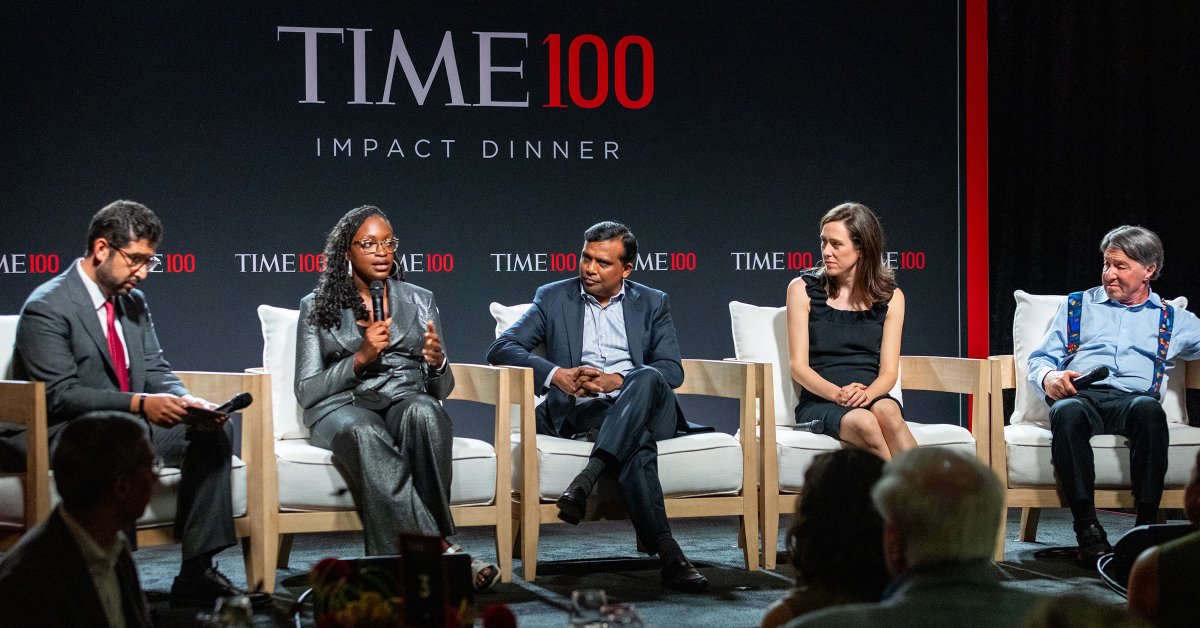Inventor and futurist Ray Kurzweil, researcher Chinasa T. Okolo, director Elizabeth Kelly, and Cognizant CEO Ravi Kumar S gathered at a TIME100 Impact Dinner in San Francisco to discuss the transformative power of AI. Kurzweil predicted that Artificial General Intelligence (AGI), a type of AI that may surpass human intelligence, will be achieved by 2029. The panel was moderated by TIME’s editor-in-chief Sam Jacobs, who probed the panelists on the opportunities and challenges brought about by AI’s rapid advancement.
Cognizant sponsored the event, which honored the 100 most influential people leading change in AI. The TIME100 AI list features individuals from various sectors, including computer scientists, business leaders, policymakers, and advocates driving significant changes in the industry. Kumar highlighted the potential economic impact of generative AI, citing a report that suggests it could add over a trillion dollars annually to the US economy by 2032. He also discussed key constraints hindering widespread adoption, such as the need for improved accuracy, cost-performance, responsible AI practices, and explainable outputs.
Okolo emphasized the growth of AI initiatives in Africa and the Global South, pointing to professor Vukosi Marivate from the University of Pretoria in South Africa, who has inspired a new generation of researchers both within and outside the continent. Despite progress in improving diversity in the field, Okolo acknowledged that more work is needed to ensure equitable representation. Kelly, director of the U.S. Artificial Safety Institute, stressed the importance of developing ethical guidelines to govern the use of AI and prevent potential harm.
The panel discussion delved into the varying perspectives on AI, with Kurzweil noting the polarized views on its impact, with some believing it will bring unprecedented advancements while others fear its potential dangers. Kumar highlighted the need for increased productivity to drive successful business cases behind task automation. The panelists also discussed the importance of responsible AI practices, accurate outputs, and transparent decision-making processes to build trust and ensure the ethical use of AI technologies.
In conclusion, the panel at the TIME100 Impact Dinner in San Francisco shed light on the transformative power of AI and the potential economic benefits it could bring. The discussions centered around achieving AGI, the challenges hindering widespread adoption, the growth of AI initiatives in Africa and the Global South, and the importance of developing ethical guidelines to govern the use of AI. As AI continues to advance rapidly, it is crucial for leaders in the industry to prioritize responsible and ethical practices to ensure that AI technologies are used for the betterment of society.









